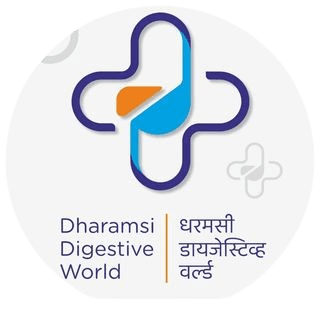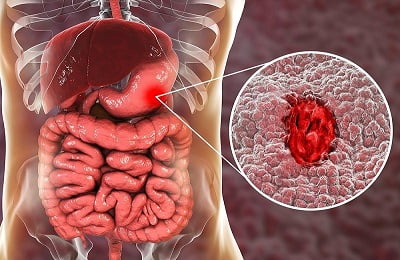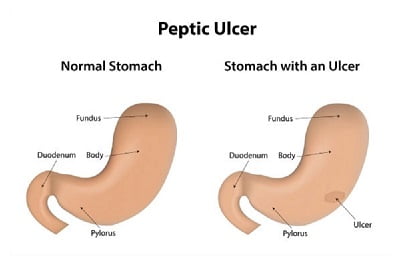Gastric Ulcer Disease
Symptoms

Burning pain
This is the most common symptom, typically felt in the upper abdomen between the breastbone and belly button. The pain may come and go, and it's often worse when the stomach is empty.

Nausea and vomiting
Some individuals may experience nausea, and vomiting may occur, especially if the ulcer is severe.

Loss of appetite and weight loss
Persistent discomfort and pain can lead to a decreased desire to eat, resulting in weight loss over time.

Bloating and burping
Some people may experience bloating and excessive belching due to increased stomach acid production.

Dark or bloody stools
In severe cases, bleeding from the ulcer can lead to dark, tarry stools or vomiting of blood.
Diagnosis
Upper endoscopy:
A thin, flexible tube with a camera is passed through the mouth and into the stomach to visualize the ulcer and take tissue samples for biopsy.
Barium swallow or upper GI series:
X-rays are taken after swallowing a chalky liquid containing barium, which coats the esophagus and stomach, making ulcers more visible.
Blood, stool, or breath tests:
These tests can detect H. pylori infection, which is a common cause of gastric ulcers.
Treatment

Medications
Proton pump inhibitors (PPIs) to reduce stomach acid production.
Antibiotics to eradicate H. pylori infection.
Antacids or H2-receptor antagonists to neutralize or reduce acid production.

Lifestyle changes
Avoiding NSAIDs, alcohol, and smoking.
Managing stress through relaxation techniques or therapy.

Dietary modifications
Eating smaller, more frequent meals.
Avoiding spicy, acidic, or irritating foods.

Surgery
In rare cases, surgery may be necessary if complications like perforation or bleeding occur.
Causes
Helicobacter pylori (H. pylori) infection:
This bacterium is a common cause of gastric ulcers. It weakens the protective mucous layer of the stomach, allowing acid to damage the lining.
Nonsteroidal anti-inflammatory drugs (NSAIDs):
Regular use of medications like aspirin, ibuprofen, and naproxen can irritate the stomach lining and lead to ulcer formation.
Excessive alcohol consumption:
Alcohol can irritate and erode the stomach lining, making it more susceptible to ulcers.
Smoking:
Tobacco use increases stomach acid production and reduces the effectiveness of the stomach lining's protective mechanisms.
Stress:
While stress doesn't directly cause ulcers, it can worsen symptoms and delay healing.
Complications

Internal bleeding
Ulcers can erode blood vessels, leading to bleeding.

Perforation
In severe cases, ulcers can create a hole in the stomach wall, causing sudden and severe abdominal pain.

Obstruction
Scar tissue from healing ulcers can narrow the digestive tract, leading to blockages.



